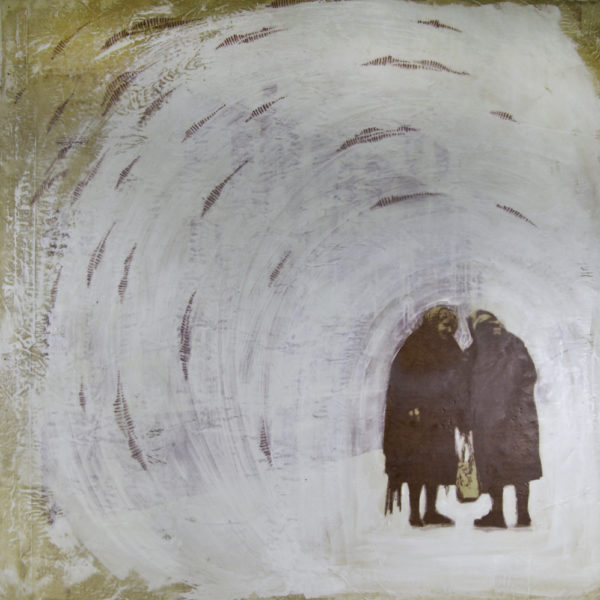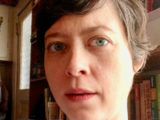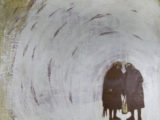Issue 16 (2019): Diverse Stories of Women on Stage
Editor’s Note
in Editorial
It is inspiring to have this opportunity to engage with the unique and rich work being done by artists across the country. How invigorating to edit this issue at a time when equity, diversity, and inclusion are finally coming to the forefront of theatre.
Assistant Editor’s Note
in Editorial
This issue of Understorey is a platform for womyn across the country to share in our common struggles around equity, diversity, and inclusion, but also rise to the challenge of creating a world where we don’t need to struggle any longer.
Recurring Dream
in Poetry
I’m in the wings, downstage right, / opening night. Old proscenium stage, / heavy dark curtains. Invisible / on the other side a full house, expectant, / sound waves like surf on a pebble beach / swelling, ebbing, swelling. Dust, / sweat. /
Shake
in Essay
And shake she did. She belted, bouncing and moving wherever the music took her body. Her electric guitar jiggled along, nestled under her chest. She was un-contained in a way that I’d always thought was reserved for thin women.
Elapultiek (we are looking towards)
in Script (excerpt)
Set in contemporary times, a young Mi’kmaw drum singer and a Euro-Nova Scotian biologist meet at dusk each day to count a population of endangered Chimney Swifts (kaktukopnji’jk). They quickly struggle with their differing views of the world.
Whale Song
in Script
I found out about this conference on Twitter and wow…. I just had to be here. I won’t take too much of your time, I promise—I know you have important things to do. Like saving the world. Or saving the Arctic…. Can we actually do that? Save the Arctic?
Playing Ball
in Libretto and Video
Tabitha is placing a rubber ball on a nightstand. Ken (her father) sits in a wheelchair. Tabitha hums while she is combing his hair. Tabitha finishes combing. She puts the ball into Ken’s hand and has to wrap his fingers around it.
England and Theatre, My Neverland
in Script
I am the child of two immigrants. Two adventurous souls who found each other on the other side of the globe. England, the lair of Shakespeare, produced my Father. Ireland, isle of the storytellers, created my Mother.
Certified
in Script (excerpt)
OK. Being certified insane means being kept against your will in a psychiatric facility. You are incarcerated but inside a hospital. Less bars, mostly just on the windows. And no guards, just nurses, but male nurses, big male nurses.
Seven Pieces
in Script (excerpt)
Kate explores the many seeds of dissociation perpetuated in her childhood home, including the denial of their Métis roots, the dull, distant disconnect to their French Canadian and Scottish cultures, and the powerful force of religion....
Smog Can Be Thick, kittens can be cruel
in Fiction
This story is a peek into my zany mind, never intended to be read by anyone but those intimately involved in the production. It served as both a fun exercise and a love letter/farewell to this powerful and touching play.
Storytelling and the Truth about Brown Women
in Essay
Stories make us feel, make us think. Stories make us reflect upon our own actions. That’s why I went into this profession, to tell stories—but not just any stories. I’ve told many people this: I wouldn’t be an actor if I didn’t have brown skin.
Asian or Mixed-Race Monologue
in Monologue
It’s Pride month, but I don’t really celebrate. Sure, I have a few rainbow flags and I might change my Facebook profile pic, but for the most part being gay is something I don’t know if I will ever truly celebrate.
#metoo
in Script (excerpt)
I was seventeen. And you made out with me while I was passed out. I was so drunk; I had crashed into the glass patio door. Fell right on my ass. I got really funny when I was drunk. I was kind of a shy kid, so, being funny was intoxicating.
Love Handles
in Fiction
It wasn’t until the pistol end of the revolver was about to enter my vagina that I finally took pause for thought. It wasn’t until the scene was set for them to make intimate acquaintance that I found cause to reflect.
1=0.999999
in Script
The interior of an elevator, with reflective mirrors on all sides. A woman (1), bone-tired, steps in at the top floor. She presses a button to go down to the ground floor. The doors shut. She initially stares at the floor....
Suddenly You’re 50
in Script (excerpt)
No working. No writing. 'Cause the last thing I want to do is write. Nooooooooo. Not writing. No desire. To write. Not even journal. NO. And I am definitely not going to write a new show. GAWD! The world does not need another show—right?
Our Ghosts
in Script (excerpt)
Our Ghosts was inspired by the true story of the mysterious disappearance of my father during a routine flight from the Comox Air Base on March 22, 1956, and its impact on my family. I wrote the play for my Mom, Claire Stubbs.
Show People
in Poetry
A palpable suspension of disbelief / audience of skeptics enthralled beyond conscience / façade in foundation, shade: too light. / beauty mark drawn high on a supple cheek / A trill of a piccolo and— / My cue. / This is what I live for.
Dragging My Soul Across A Hellscape of Broken Glass, or One Woman’s Account of Filing For Disability Support
in Creative Nonfiction
My doctor made an appointment with a neurologist. I’m still waiting, a year later. I went to my naturopath, who, before talking about the seizures, asked me about my financial situation. (Freelance artist. Poor.) She suggested disability support.
The Way You Remember It
in Cover Art
The Way You Remember It (Part 1) by Monica Lacey references the fallibility of memory, and the way personal perspective shapes the archive of experiences we share with others. The way we remember things is not necessarily the way things happened. We all create a version of reality based on our unique lens.






















